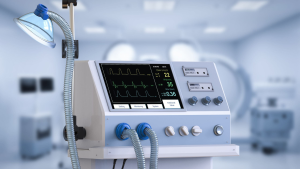The Reasons of Boat Owners Selecting Lithium Marine Batteries
Boaters are switching to lithium marine batteries more frequently as a result of the 89 percent decline in lithium battery pack pricing over the last ten years; one of the numerous reasons for this trend is the batteries’ reasonable cost. Any boater who wishes to spend more time on the water with fewer anxieties will profit greatly from lithium batteries’ increased efficiency, drastically decreased weight, longer-lasting power, and safety.

The Advantages of Lead-Acid vs Lithium Marine Batteries
The following are some of the main explanations for why boaters are choosing lithium batteries for their aquatic adventures rather than lead-acid:
Lead-acid batteries are larger and heavier than LiFePO4 batteries.
Double the speed at which they charge
For your yacht, they are a simple drop-in installation.
They include integrated safety features.
LiFePO4 Batteries Have Reduced Size and Weight
Extra weight is the last thing you want to bring on your boat vacation, whether you’re fishing, racing, or sailing. It will take up more room and reduce speed. Actually, they weigh between one-third and half as much as lead-acid batteries with equivalent capacities on average.
For instance, the Maxworldpower 12V 100Ah battery weighs only 26.4 pounds, whereas the VMAX 12V 200Ah AGM battery weighs 82 pounds, or roughly three times as much. A 200Ah VMAX AGM battery can only be discharged to about 50% of its rated capacity, whereas a 200Ah lithium battery can be discharged to 50% of its rated capacity. This is why we compared the two types of batteries: a 200Ah AGM and a 100Ah A Maxworldpower lithium battery. In addition to being substantially lighter and more compact, they also have a higher energy density—that is, more energy per unit of battery size.
Lithium batteries are lightweight, weighing only one-third that of conventional lead-acid batteries. In addition, lithium has a larger useable capacity than lead acid, averaging 80% or more compared to lead acid’s average of 30–50%. What does that signify, then, for your maritime applications? You’re getting a lighter, more powerful marine battery that will enable you to travel farther and faster. Lighten your boat’s load and improve your speed capacity.
Increase the Fuel Efficiency of Your Boat
The speed and performance of your boat are reduced by heavy lead acid marine batteries. A large battery also decreases the efficiency of your fuel use in a small boat. Rather, you require a high-performance, lightweight lithium marine battery. By reducing the number of visits you need to make to the fuel dock, you can save time by improving your boat’s fuel economy. Additionally, you save money on fuel, particularly if you cruise the sea a lot. Additionally, by using less fuel, you can lessen the emissions that contribute to your carbon impact.
If you own a boat like most people, you will typically bring supplies and equipment with you when you go fishing. Cases of drinks, lures, and tools all add up to extra pounds. Lightening the weight of a boat is one of the simplest methods to increase fuel efficiency. To get better fuel economy, you don’t need to give up as much gear when using a lightweight lithium battery.
Boost the Speed of Your Boat
Big lead-acid batteries will just make your boat move more slowly. Having excess weight makes your boat travel through the water with greater displacement, requiring more energy to propel it forward. You are therefore unable to move as quickly. Moreover, drag is increased and acceleration is hindered when one is lower in the water. For tiny boats and other shallow-water craft, a high degree of buoyancy is preferred. You can accelerate to your highest speed and change directions faster when there’s no weight on your battery.
Although bigger boats have greater momentum, this advantage is typically only useful in bad weather. Furthermore, it requires more energy to restart your boat when it has stopped. All things considered, it’s preferable to maintain a light boat.
Small draft boats can manoeuvre in shallow water, which enables you to reach ports that are out of the way or even dock directly next to the shore.
You can use charts and watermarks on nearby structures to help you determine the depth of the water, but if you’re travelling in a region where the tide comes in and goes out, you might not always be able to tell. When navigating in shallow seas, it’s critical to maintain a minimal draft to prevent running into underwater obstacles or becoming caught on sandbars.
Marine Batteries with Lithium Last Longer
Marine lithium batteries are not only lighter and smaller than any other battery type, but they also have a longer lifespan than any other type, which means replacement costs are significantly reduced and hassles are avoided. Although lead-acid batteries are designed to last between 1,000 and 1,500 cycles on average, less than half of them really live up to this expectation.
In contrast, a lithium battery can last anywhere between 3,000 and 5,000 cycles on average, depending on how deeply it is discharged. Lithium Iron Phosphate (LiFePO4) batteries from Maxworldpower, for example, have a design that allows for 3,500 cycles at 80 percent depth of discharge and even more cycles at lower discharge depths. Interestingly, because of its longer life cycle, this battery type does not even need the extensive maintenance that lead-acid batteries do due to their shorter lifespans. When compared to lead-acid batteries, the lifespan of a lithium battery can occasionally reach up to ten times longer.
With a longer battery life than a lead-acid battery, you will get more use out of it and ultimately save money because you won’t need to replace it as frequently. Additionally, Maxworldpower offers a 10-year guaranteed warranty, so you can rely on it if you do have any issues about your lithium battery. For professional fisherman or sailors who spend a lot of time at sea, the longer lifespan is very crucial.
Being marooned at sea is something no one desires. Therefore, when choosing a battery for your marine applications, dependability should be your first concern. Standard batteries only last one to two years; however, if you use lithium, your battery’s lifespan may even outlast the life of your boat. Lithium is a dependable marine energy source; don’t worry about lead-acid batteries dying on you out at sea.
Lithium Batteries Run at Full Capacity and Have Greater Power
Lithium batteries are perfect for your maritime application due to a number of additional features that go beyond the benefits of weight reduction. Upon purchasing a boat battery, one would anticipate that it could be fully depleted to the rated or marketing capacity, which is 1,200 Wh or 2,400 Wh, at the very least. Regretfully, when lead-acid batteries are utilized to more than half of their capacity, harm might occur. You can genuinely make the most of your time on the water since lithium batteries have a far higher discharge capacity, which gives you more energy during each daily charge/discharge cycle.
Low rates of self-discharge characterize LifePO4 batteries. This lessens the need for regular battery charging and helps increase storage duration. Similar capacity lead-acid batteries only have a small operational capability compared to batteries like the Maxworldpower RB100-HP battery, which have a maximum continuous discharge current of 100A and a peak discharge current of 800A. This makes Maxworldpower batteries far more reliable.
By adding LiFePO4 to your boat, you can run radios, live fishing wells, graphs, GPS systems, and everything else you would need for a whole day on the sea.
Quick-Charging Marine Lithium Batteries
In addition to having a longer lifespan and being able to run at maximum capacity, lithium batteries also charge more quickly. Low resistance in lithium-ion marine batteries facilitates quicker charging periods and helps maintain voltage under high discharge loads. Lithium batteries can also be recharged numerous times each day, however lead-acid batteries should normally only be charged once every 24 hours to avoid shortening their lifespan. You can maximize your time on the water by using a lithium battery, which offers a quicker charge time and a longer-lasting charge than a lead-acid battery..
Installing Drop-In Batteries Easily for Your Boat
Fortunately, it is not as difficult or time-consuming as it may first appear to install a lithium battery. As an illustration, the design of Maxworldpower’s batteries makes them renowned for being easy to install and streamlined. Their batteries are readily replaceable with simple drop-in replacements in standard Battery Council International (BCI) sizes, which is useful when upgrading a lead acid battery bank effectively.
Making the transition to a lithium battery as seamless as possible is achievable thanks in part to the assistance of Maxworldpower’s professional and helpful support staff, who can assist you with all of your queries. One of the business’s most recent boating clients revealed:
“I felt intimidated and overwhelmed by switching to a lithium battery, which is why I was so concerned about it. Everything changed as soon as I received assistance from the Maxworldpower customer support team, who guided me through each stage of the procedure.
Security
LiFePO4 batteries are without a doubt the most secure option available for a power supply. Maxworldpower lithium iron phosphate batteries have a fail-safe feature that causes the battery to disconnect instantly if the unit approaches overheating, even though any battery could malfunction. A dead short across battery terminals could result from the careless positioning of metal objects kept close to lead acid battery compartments, which could explode or catch fire. You can reduce the chance of a fire and maintain the smooth operation of your marine application by using Maxworldpower batteries.
Is Your Boat a Good Fit for a Lithium Battery?
A less time- and money-consuming option for powering your watercraft when you wish to increase overall performance is to convert to a lithium marine battery. Just by switching your power source, it’s like receiving a brand-new, upgraded boat!
Numerous batteries from Maxworldpower are perfect for use in marine environments. You may save room on your boat while obtaining more power and a quicker charge. Use our Lithium Battery Selector Tool to discover more about how to determine how much energy you need and which battery will work best for your needs. Get in touch with a Maxworldpower expert right now if you have any further enquiries about how a lithium battery can power your upcoming boating excursion or if you have concerns about a particular battery.






